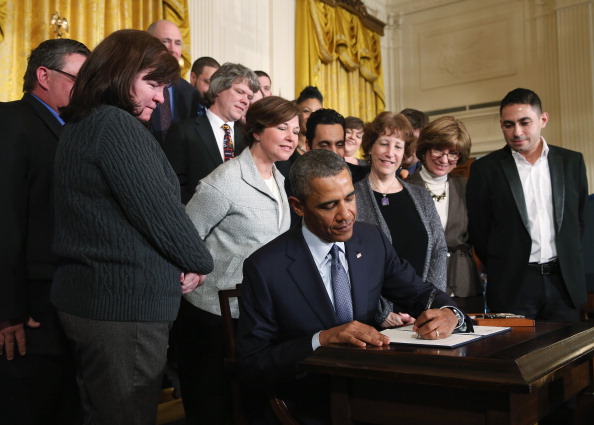
The Obama Administration hasn’t released the details of its proposed changes to overtime pay, but the public reaction is playing out along familiar lines: Union leaders are full of praise, while corporate groups are raising red flags.
Under the current law, salaries workers making more than $23,660 are not eligible for overtime. Under the proposed change, the Department of Labor could raise the maximum eligible salary to more than $50,000—giving millions of workers a boost in pay.
The change would be a major overhaul of the rules, which last received a slight update in 2004 but have otherwise not been touched since the 1970s. It came about after Obama ordered the agency to revamp the rule in 2014 as part of a second-term effort to boost middle-class workers without going to Congress.
The National Retail Federation, which represents retailers across the globe, warns that the rule could have unforeseen consequences. In a recent report, it argued that retailers would likely avoid paying overtime by simply hiring more lower-paying part-time workers. They argued that would reduce the money for other jobs, like low-level supervisors, operations managers, clerks and chefs.
“If the stated goal of the administration is the pathway to the middle class it makes no sense to have regulation that would eliminate managerial positions and supervisory positions and replace them with part time and hourly,” says David French, the group’s senior vice president of government relations.
The U.S. Chamber of Commerce also issued a dire warning earlier this year, saying in a letter to the Department of Labor that the pending rule could have a “significantly disruptive effect on millions of workplaces.” On Wednesday, a lawyer speaking on behalf of the Chamber before a House subcommittee on Education and the Workforce said that the the entire Fair Labor Standards Act should be updated instead.
Some economists say the change is overdue, however.
Ross Eisenbrey, the vice president of the Economic Policy Institute, says when the rule was adjusted in 1975 more than 60% of salaried employees were eligible for overtime. According to his most recent calculation, he says, less than 10% of workers are currently eligible. The institute previously found only about 11% of workers were eligible in 2013.
“Today, about 50% of children are raised in a family where both parents are working,” Eisenbrey says. “Having them work overtime is a particular strain on children and families with children. We need this rule more than ever.”
Daniel Hamermesh, labor economist and professor emeritus at the University of Texas at Austin, argues that while the total amount of hours worked per employee will go down, the number of workers will go up. “It’s a job creator,” he says.
“Americans now work more than any other country,” he adds. “Anything that diminishes that a little bit, I think is good.”
In Congress, the debate is playing out along party lines. Democrats have urged the President to take a bold step on the rule—in January, 26 Democratic Senators sent a letter urging the president to raise the threshold for overtime pay to $56,680—double the current level. Republicans, on the other hand, recently reintroduced a bill that would give workers the option of using hours they accrue working overtime to take time off for family or medical leave instead of getting paid time and a half.
But Congress will likely be a sideshow to this debate. Even if Republicans passed a bill to block the change, Obama would likely veto it.
More Must-Reads from TIME
- Donald Trump Is TIME's 2024 Person of the Year
- Why We Chose Trump as Person of the Year
- Is Intermittent Fasting Good or Bad for You?
- The 100 Must-Read Books of 2024
- The 20 Best Christmas TV Episodes
- Column: If Optimism Feels Ridiculous Now, Try Hope
- The Future of Climate Action Is Trade Policy
- Merle Bombardieri Is Helping People Make the Baby Decision
Contact us at letters@time.com